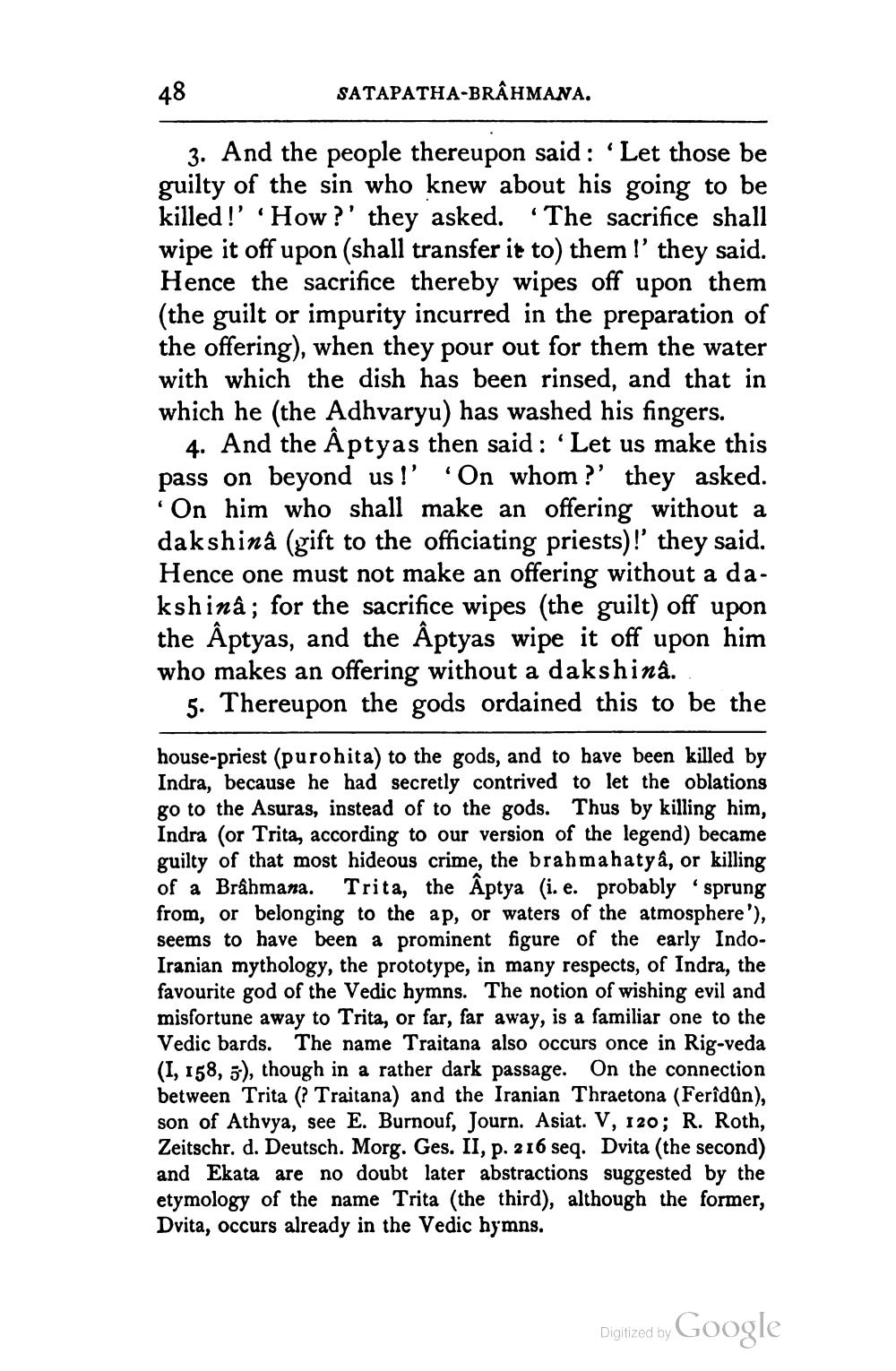________________
SATAPATHA-BRAHMANA.
3. And the people thereupon said: 'Let those be guilty of the sin who knew about his going to be killed !' 'How?' they asked. “The sacrifice shall wipe it off upon (shall transfer it to) them!' they said. Hence the sacrifice thereby wipes off upon them (the guilt or impurity incurred in the preparation of the offering), when they pour out for them the water with which the dish has been rinsed, and that in which he (the Adhvaryu) has washed his fingers.
4. And the Âptyas then said: 'Let us make this pass on beyond us !' 'On whom?' they asked.
On him who shall make an offering without a dakshina (gift to the officiating priests)!' they said. Hence one must not make an offering without a dakshinâ; for the sacrifice wipes (the guilt) off upon the Aptyas, and the Aptyas wipe it off upon him who makes an offering without a dakshina.
5. Thereupon the gods ordained this to be the
house-priest (purohita) to the gods, and to have been killed by Indra, because he had secretly contrived to let the oblations go to the Asuras, instead of to the gods. Thus by killing him, Indra (or Trita, according to our version of the legend) became guilty of that most hideous crime, the brahmahatya, or killing of a Brâhmana. Trita, the Aptya (i. e. probably 'sprung from, or belonging to the ap, or waters of the atmosphere'), seems to have been a prominent figure of the early IndoIranian mythology, the prototype, in many respects, of Indra, the favourite god of the Vedic hymns. The notion of wishing evil and misfortune away to Trita, or far, far away, is a familiar one to the Vedic bards. The name Traitana also occurs once in Rig-veda (I, 158, 3-), though in a rather dark passage. On the connection between Trita (? Traitana) and the Iranian Thraetona (Feridûn), son of Athvya, see E. Burnouf, Journ. Asiat. V, 120; R. Roth, Zeitschr. d. Deutsch. Morg. Ges. II, p. 216 seq. Dvita (the second) and Ekata are no doubt later abstractions suggested by the etymology of the name Trita (the third), although the former, Dvita, occurs already in the Vedic hymns.
Digitized by Google




